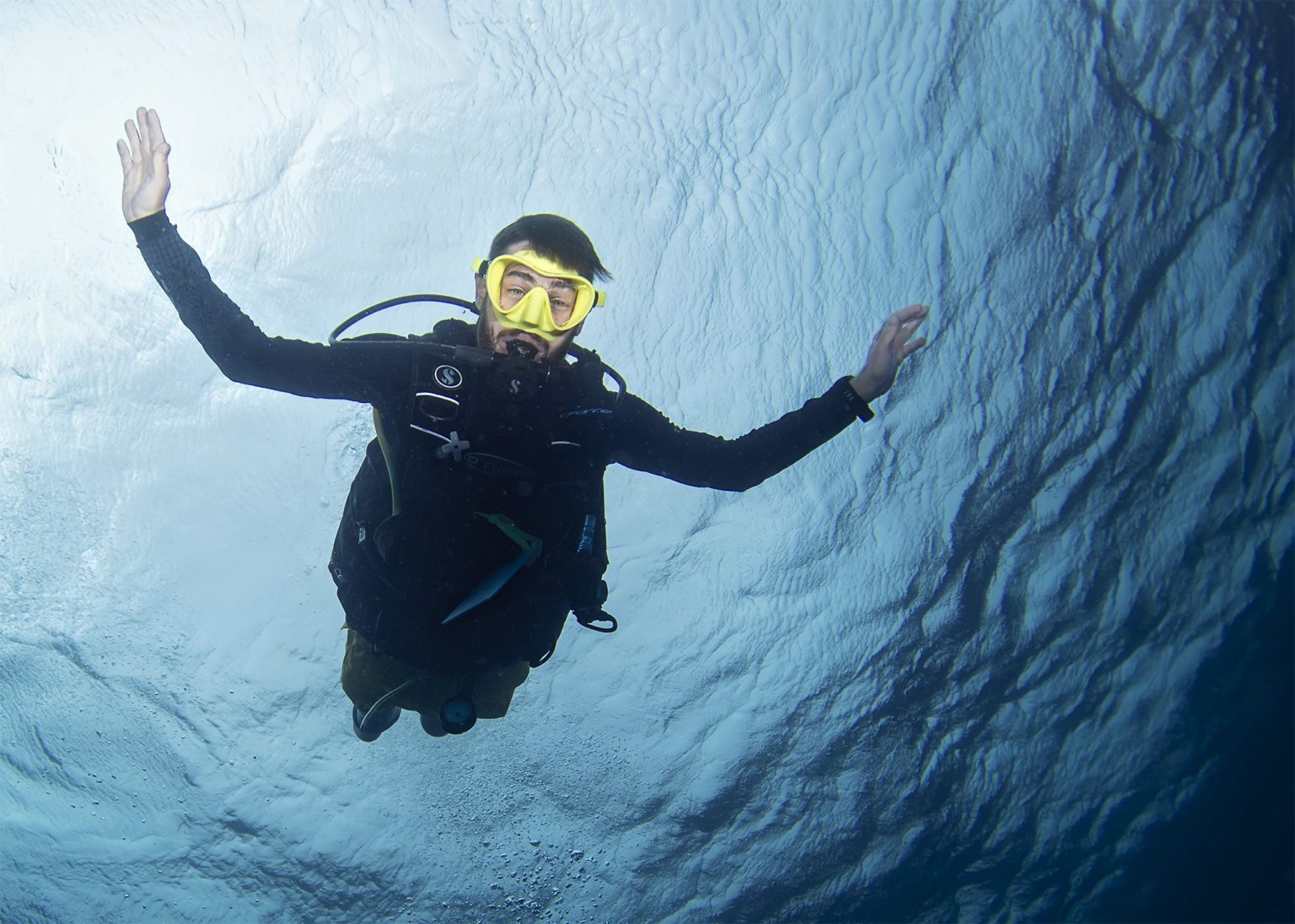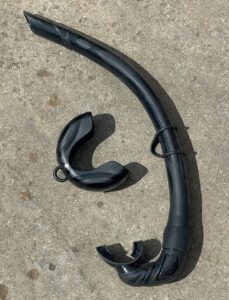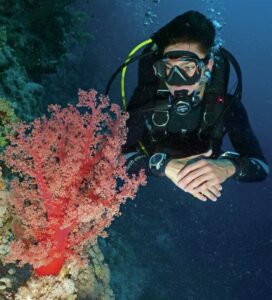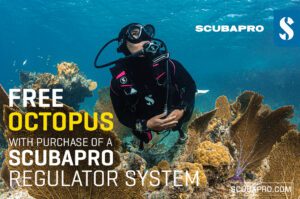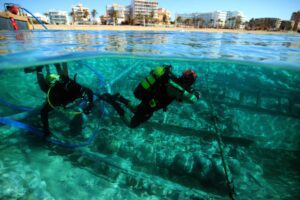Richard Cullen, Chairman and Head of Operations for Deptherapy and Deptherapy Education, gives an insight into adaptive teaching for scuba diving
If anything sums up adaptive teaching in scuba diving, it is this quote:
“Everyone you meet can teach you something, you just have to be open and if this means parking your ego so be it.” – Jay Morton
For far too many years teaching those with ‘disabilities’ to dive was the domain of the few who sadly viewed themselves as experts. Unfortunately, even recently, I have seen an instructor describing themselves as having ‘expertise’ in adaptive teaching. I know for a fact that the reality is far different.
Writing this article was immensely difficult, I could easily write a book on the subject but deciding what to include and what to leave out of this article was a real challenge.
Mark Downs, who is a HSE Approved Medical Examiner of Divers and one of our dive medicine advisors, has written an additional article on the medical aspects of adaptive teaching. Adaptive scuba diving teaching is a challenging area, it is okay when things are going well but it is so easy for things to go wrong – and go wrong big time. A student who has been signed off as fit to dive by his GP is on medication (that an AMED would refuse to sign the individual off as fit to dive or impose a depth limit), dives to 40m, he experiences a seizure, his instructor is metres away. The probability, as unpleasant as it is, is death by drowning.
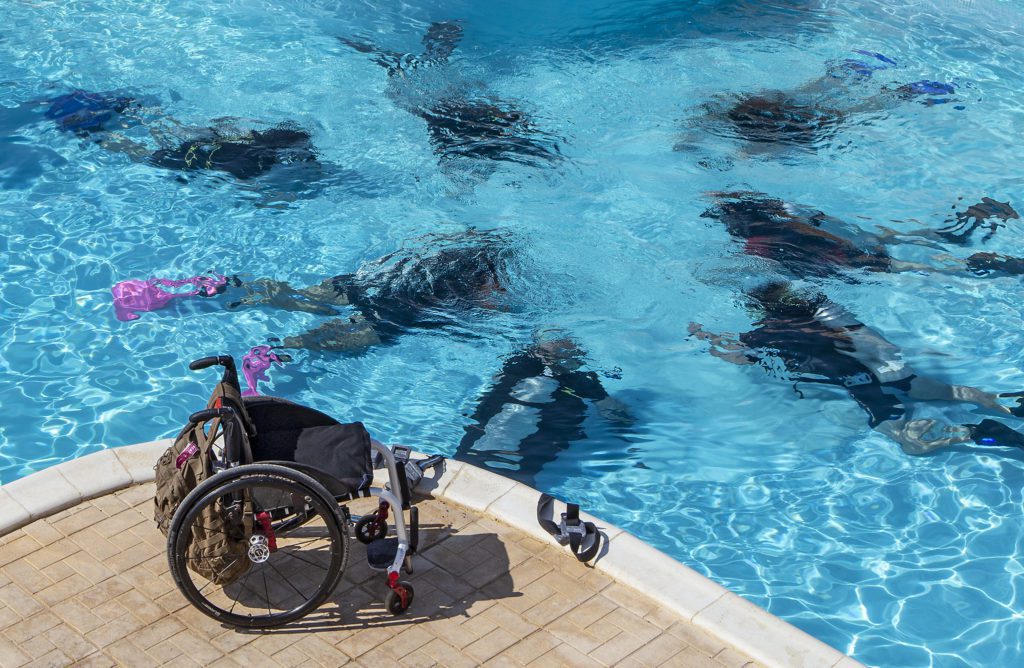
People often look at how the Deptherapy team work and think ‘that is easy’, it is not. Our team of instructors is very experienced and over the years we have taught dozens, upon dozens, of students who have some of the most severe mental and/or physical challenges imaginable. We do not however regard ourselves as experts, we never stop learning.
People also look at the relationship we have with Deptherapy beneficiaries. That type of relationship is unlikely to exist if you have a disabled student who comes to your dive centre to learn to dive. Deptherapy is different, programme members such as Chris Middleton have been part of the Deptherapy set up for eight or nine years. We see them several times a year and, in many cases, we are also providing 24/7 mental health support. As Tom Oates said, in the presence of the Duke of Sussex “for me that means two years’ worth of 24/7 support”.
Our aim is to qualify beneficiaries, in the first instance, as RAID Open Water Divers and we select them on that basis. This is adaptive teaching but there are those who due to the nature of their injury or condition, and sometimes medication will never ever be able to dive independently in a buddy pair. They will always need varying levels of professional support. RAID and some other agencies offer restricted certifications for these divers. RAID’s classifications for divers who need varying levels of support are D1,D2, D3. Sadly there are some who will never be able to dive at all.
Not being defined by disability
JJ Chalmers, the former Royal Marine who was seriously injured in an IED explosion in Afghanistan and who many will have seen as a contestant in the 2020 series of Strictly Come Dancing, said in a recent interview “I am not defined by my disability.”
Chris Middleton, who is a bilateral amputee and a Deptherapy Ambassador, was very clear when he asked me to teach him to dive that he wanted to have a certification card that said ‘diver’ and made no reference to ‘disabled’. I really believe that organisations such as Disabled Divers International (DDI) and the International Association of Handicapped Divers (IAHD) need to move into the 21st century and review their organisations’ names.
What you do need to accept is that your student lives with their challenges everyday of their life. Making assumptions about how they adapt to and overcome those challenges is something beyond your understanding, unless, in the unlikely event, you have exactly the same challenge. Adaptive teaching is all about continuous learning and that learning comes mainly from your student. You don’t tell them how to do a skill that might be affected by their disability; you explain and show them the skill and then ask them how they might complete that skill.
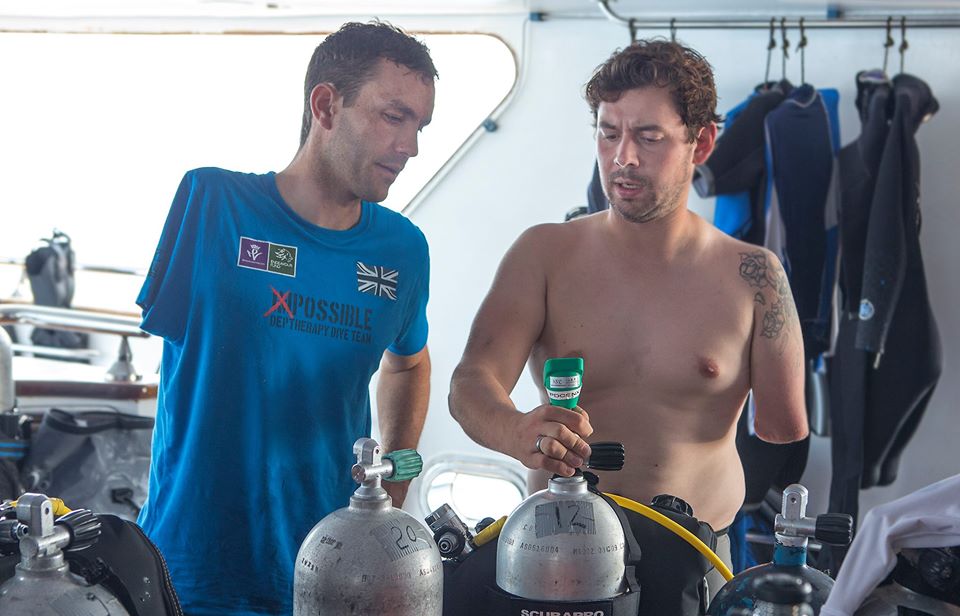
Can you tie your shoelace, or neck tie one-handed? The answer is probably a big no. I know three single-arm amputees who can do both, and do both with ease.
You need to see beyond the injury or illness and see the person inside, that is the person you are working with.
You might consider some of what I say as being ‘brutal’ and it probably is. Within the scuba diving community and society generally, there is a lack of understanding about ‘disability’, in fact there is a substantial level of prejudice. Three examples:
- A bilateral amputee, qualified as a Divemaster, who was on holiday in Mexico visits a dive centre and seeks to book some dives on their day boats. Response: “You have no legs, how can you be a Divemaster, we don’t do disabled diving.”
- Close to my family’s apartment in Sahl Hasheesh, Egypt, was a dive centre. My wife and I dived there regularly. I take two bilateral amputees who I am taking for their open water dives to dive on the day boat. Response: “We are only letting them dive because we know you.”
- On a Red Sea liveaboard, an experienced diver says to Chris Middleton: “You shouldn’t be a PADI Divemaster, you should be a disabled Divemaster.”
I could give you many more examples.
Not defining someone by their disability is probably the first rule when interacting with those who have mental and/or physical challenges.
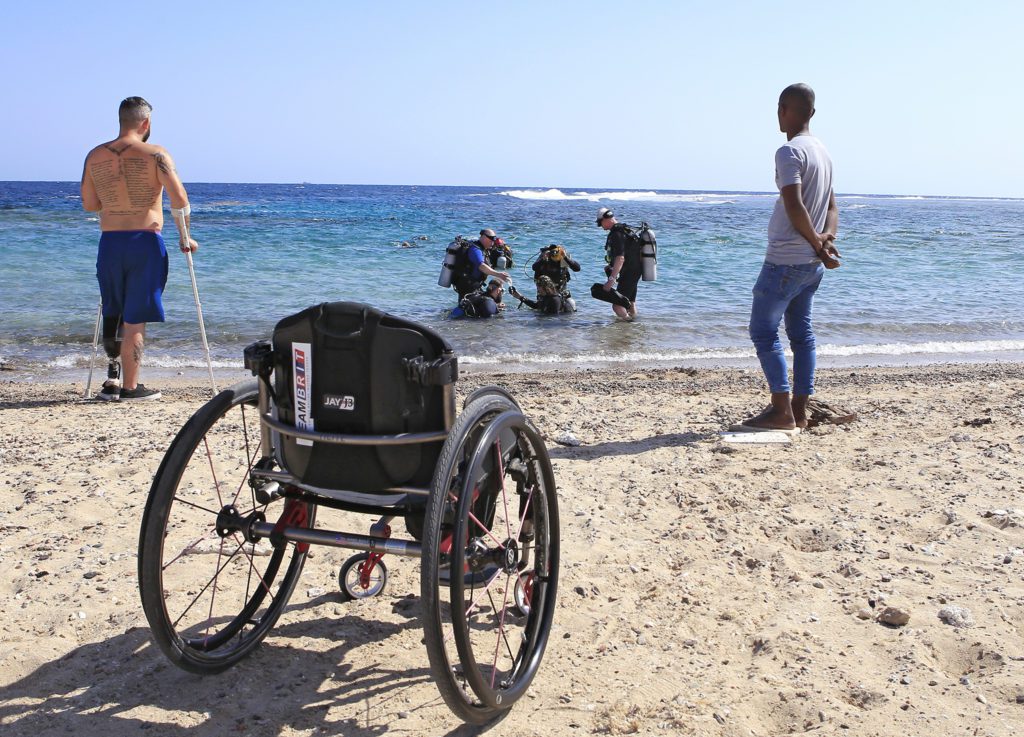
There are other rules and some of these are:
- Do not show your student pity or tell them they are brave.
- Do not say “I can imagine (for example to an amputee) what it is like to have no legs”.
- Do not say “I do not know how you cope”.
- Do not help unless asked – for example, pushing a wheelchair.
- Do not intrude by asking about an injury/illness and saying; “Tell me what happened?” – if they want to tell you they will.
“The worst thing you can do is show us pity” – Owen Pick, single below the knee amputee.
Talk to the student, not a third party, it is dreadful to hear someone say “does he need help?” or “can he do this?”
Mental Health
Offers huge challenges. Please be extremely careful. In Deptherapy, all the team are trained as Mental Health First Aiders, we are advised by a consultant psychologist. 90 percent of those we work with in Deptherapy have mental health issues, largely PTSD, often complex PTSD (multiple traumatic incidents), but also depression and anxiety disorders. Assume nothing – as most of our students with mental health issues look physically fit and have no physical injury, it is easy to think they are well and fit to dive. You need to take a step back; some will be on medications for which a HSE Approved Medical Examiner of Divers or a Dive Referee would not sign off a fit to dive.
Do you know the signs and symptoms of a panic attack or how to deal with someone suffering a flashback?
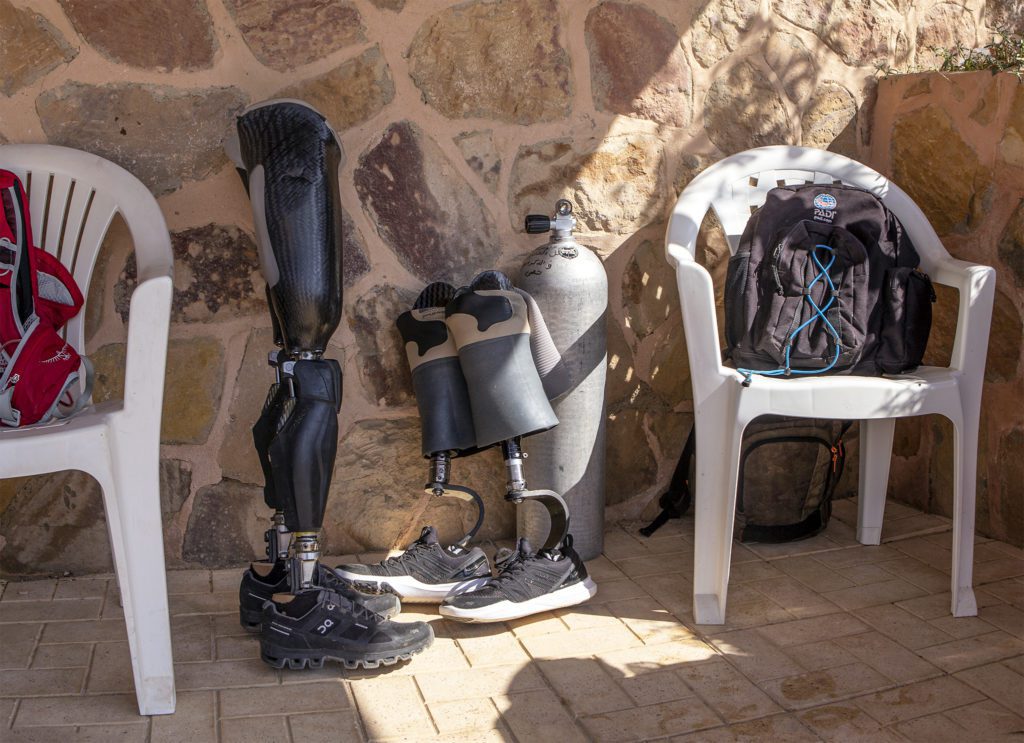
A stressful situation underwater can provoke a reaction, that might manifest itself in panic. On the surface intervening when someone is experiencing a flash back might result in them becoming physically violent towards you.
Working with a student with Autism can be very different, they may need repeated demonstrations and they will often ask ‘why?’. Again, trying to intervene and trying to hurry them up may result in an unwanted reaction.
Experts
If you fall into the ‘expert’ mode then you never will be able to master adaptive teaching. Every student has a different challenge, even if confronted with two bilateral amputees, who have exactly the same amputation, you can guarantee their needs will be different.
I have been doing this for a long time, working with dozens upon dozens of students with extreme mental and/or physical challenges. I am not an expert; I am part of a team. A team of very experienced instructors who together have learned to cope with the extremes of ‘disabled’ diving. None of us would refer to ourselves as experts.
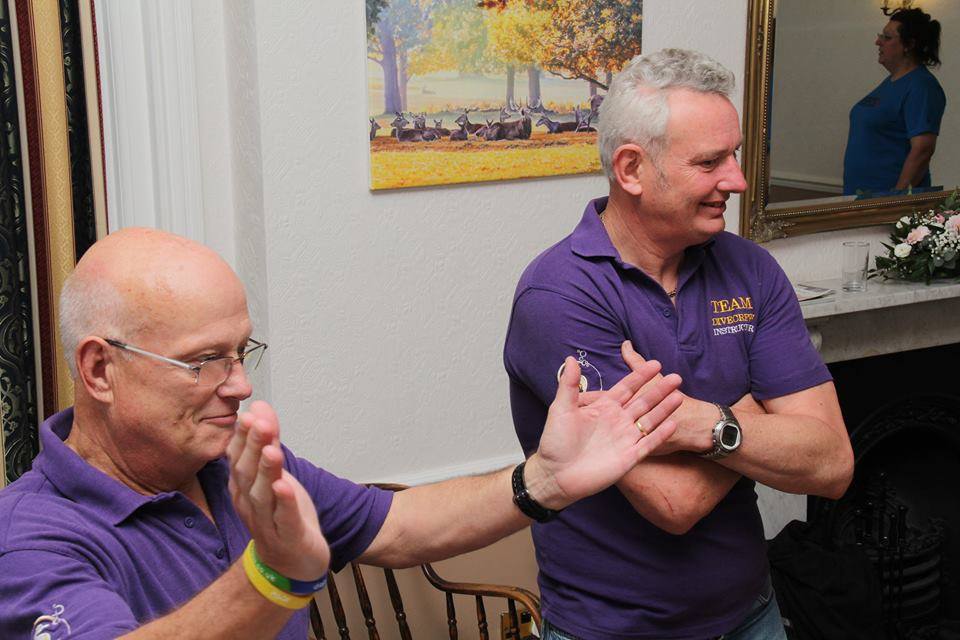
With humility comes integrity – pride comes before a fall
When we run Deptherapy Education courses to train instructors in adaptive teaching we use some of our programme members to act as students so the instructors get first hand experience of working with people with disabilities rather than ‘simulations’ and ‘roleplaying’, which I have to say are almost valueless. On one course an instructor was asked to teach a through-the-shoulder amputee; to remove, replace and clear a mask. Underwater, instead of showing the student how he, the instructor, would complete the skill, he tried to do it one handed. He made a total mess of it and the student had to help him. The instructor had to surface as he inhaled water. When it came to the student’s turn, he completed the skill, showing absolute mastery of the skill.
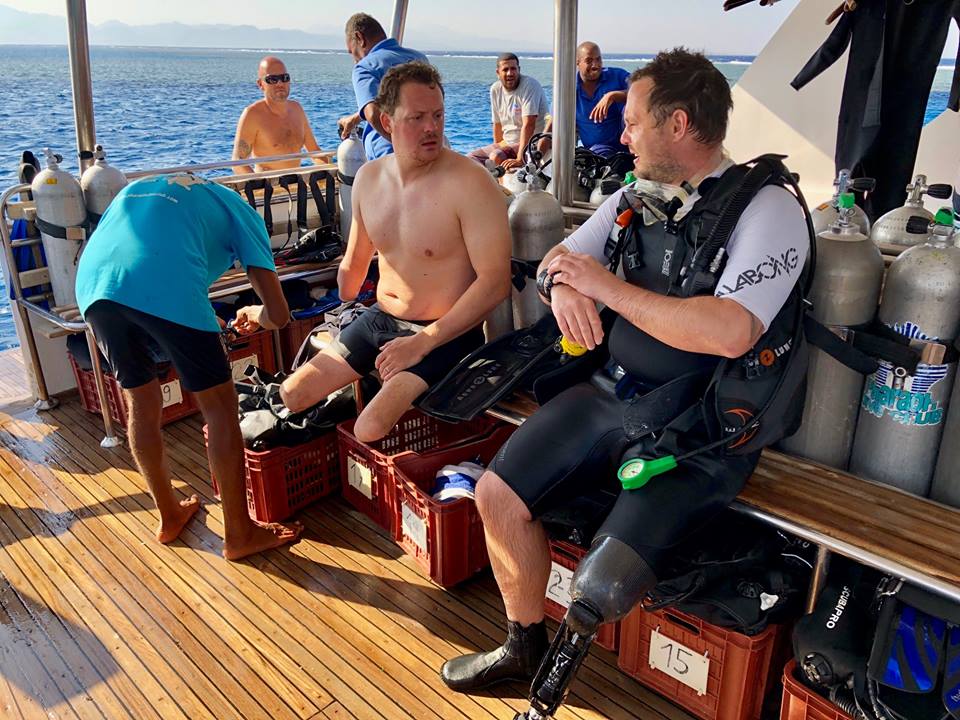
Learning a new language
As an instructor you need to learn a new language that defines amputations etc. “I am a bilateral amputee” means both legs, above or below the knee, or one above and one below, or maybe both arms. You will hear words such as transpelvic and through the shoulder. “I have a complete lesion at T1” donates where the damage to their spine occurred. “I have complex, chronic PTSD”, “I have adjustment disorder”. The list is endless. Amputations are often described in abbreviated fashion – AK = above knee, 1 AK, 1 BK means one above the knee and one below the knee. BE = below the elbow, etc. Many find the expression ‘stumps’ as a horrible term, it is the medical term for the remainder of the limb that has been amputated. You will hear words such as Heterotopic Ossification? No? Well, look it up.
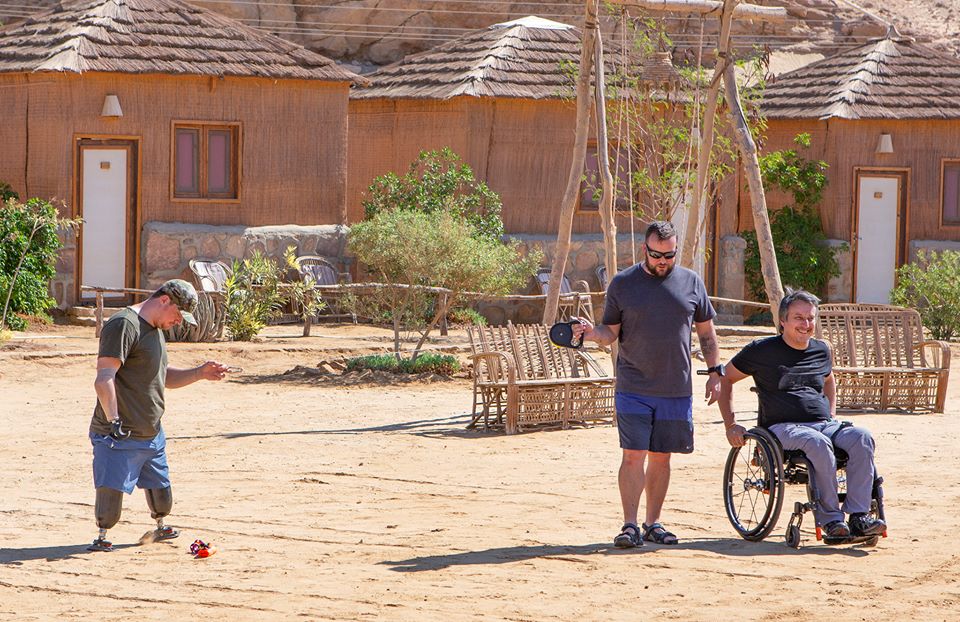
Assess the student – fitness to dive
All Deptherapy students have to be passed as fit to dive by an AMED/Dive Referee. GPs do not have the knowledge of scuba diving and the effect of pressure on medication etc. In the past we had experiences of students who had been signed off as fit to dive by a GP or their Regimental Medical Officer only to find they were on medications that meant they should not be diving.
Stumps are vulnerable to damage and a cut, or crack in the stump where the skin is often tight and brittle can lead to an infection that may result in hospitalisation.
Some students may need time out. For example, someone with Multiple Sclerosis might tire easily. They may need to miss a dive or have time to chill. Someone who has experienced a flashback will need time to recover, may need to lie down, they certainly need quiet and may need medication.
On Deptherapy trips, we meet as a multi-disciplinary team every day to discuss each beneficiary’s mental and physical health.
You need to understand body language and your student’s behaviours. Their demeanour may mean that they shouldn’t be diving. You need to be able to manage the outcome of a decision not to allow an individual to dive.
Many mental and/or physical challenges require constant assessment and medical clearance.
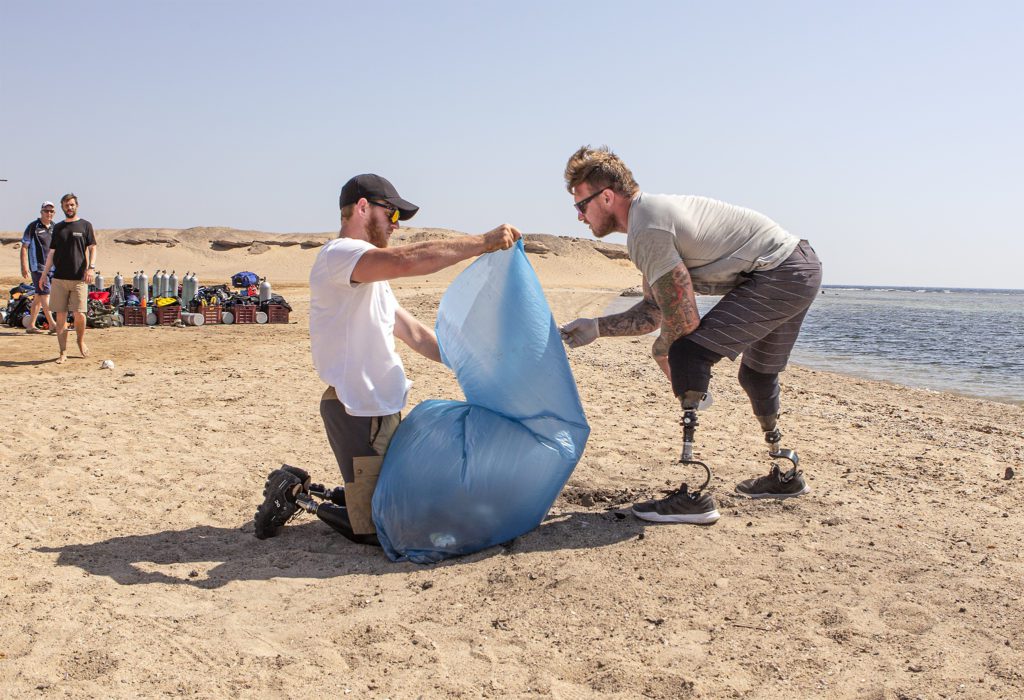
Don’t make assumptions
Lots of people see a leg amputee and immediately think trauma, but most leg amputations are carried out as the result of Diabetes. This creates a problem as you now have comorbidity, so you are not just dealing with limb loss but also the fact your student will be taking insulin and possibly other medications. The evidence is clear, that, in general, stumps heal less well if the reason for removal was Diabetes.
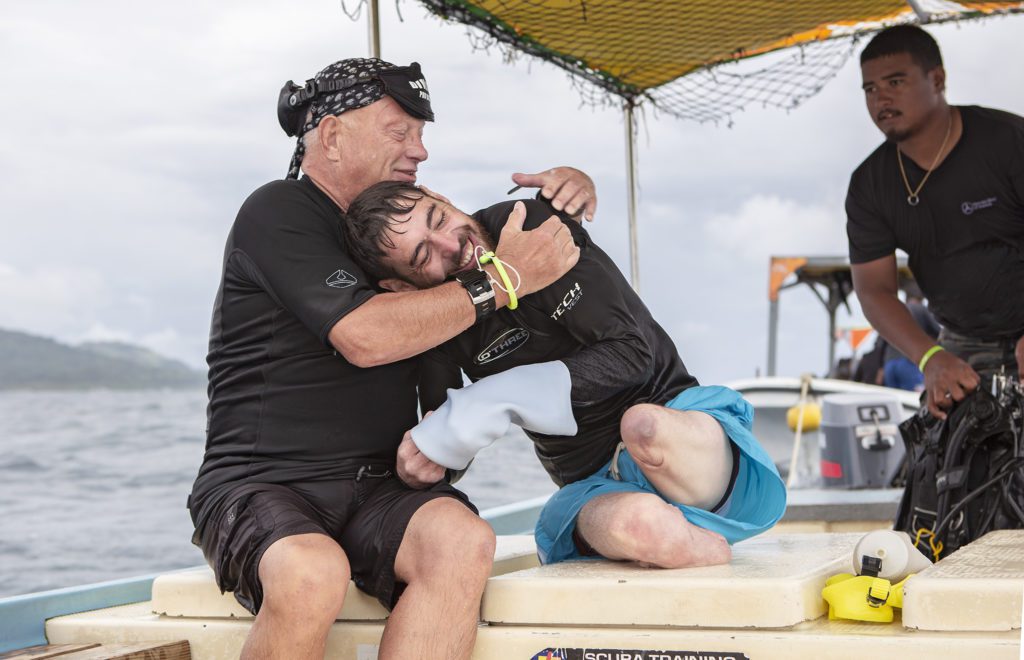
Assess the student – skills
You need to review the injuries/illness your student has and work out which skills will, or may need adapting, for them to qualify as divers. There is no handbook that will tell you how to teach a bilateral amputee to complete a CESA. You might have ideas how they can complete the skill and you can discuss that with them.
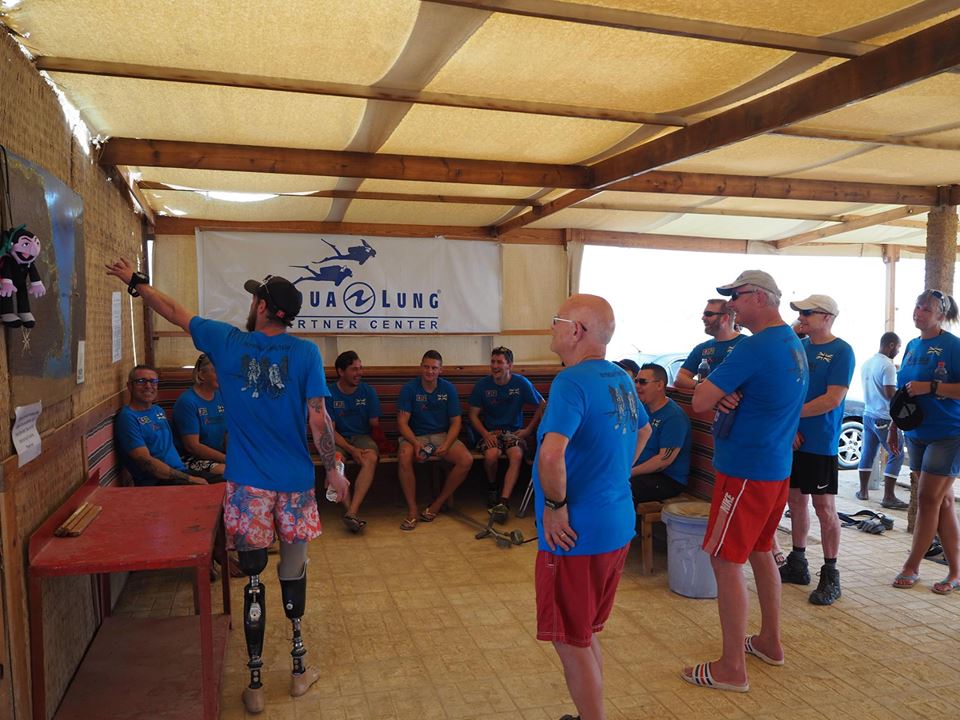
Do not turn a blind eye
Students must achieve the standard required for each skill to qualify as a mainstream diver. Sadly, as a charity, we see all too frequently students where ‘favours have been done’ and a skill not completed or not completed so that the student is able to display mastery. In one case a paraplegic who had been certified as an Open Water Diver had never completed a deep-water entry on his own or completed a deep water exit without help. He was unwilling to remove and replace his mask. We put him through another full Open Water Course where he was required to and completed all the required skills. Instructors doing ‘favours’ is both negligent and dangerous.
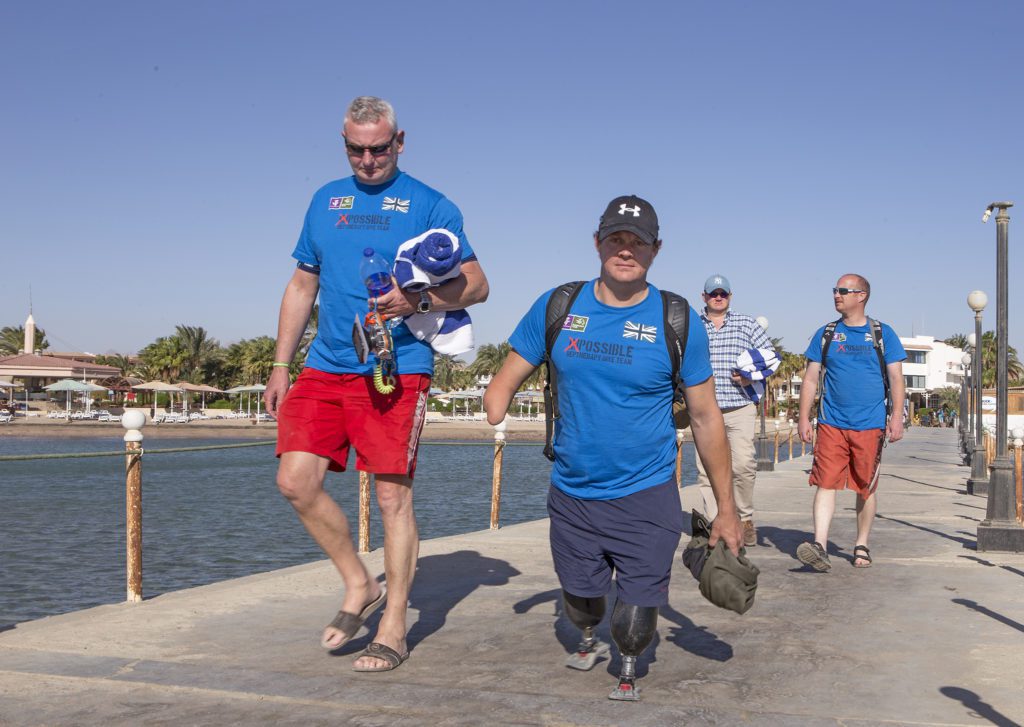
RAID
Presently we are writing the RAID manuals and instructor courses for adaptive/disabled diving and when published they will move the scuba diving world into a new level of making scuba diving accessible to all.
